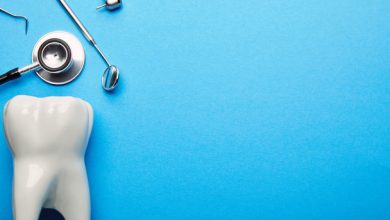How Does Saliva Protect Teeth: The Superhero Secret

Saliva protects teeth from dental caries by neutralizing acids, remineralizing tooth enamel, and washing away food particles and bacteria that can cause tooth decay. The natural defense mechanism of saliva acts as a shield by maintaining the balance of pH in the mouth.
It contains bicarbonate and buffers that neutralize the acid produced by bacteria, preventing the demineralization of tooth enamel. Saliva also contains minerals like calcium and phosphate, which help to remineralize and strengthen the enamel. Additionally, the mechanical action of saliva helps to wash away food particles, bacteria, and plaque from the teeth, reducing the risk of cavities.
Overall, the protective properties of saliva play a vital role in maintaining oral health and preventing dental caries.
Understanding Saliva’s Role In Protecting Teeth
Saliva plays a crucial role in protecting our teeth from dental caries or tooth decay. It acts as a natural defense mechanism in maintaining oral health. Saliva contains important components that help in preventing tooth decay and promoting remineralization.
Firstly, saliva neutralizes the acid produced by bacteria in our mouth, helping to maintain a balanced pH level. This is important because acidic conditions can erode the tooth enamel, making it more susceptible to decay. Saliva also contains antimicrobial properties that help to control the growth of bacteria in our mouth, reducing the risk of cavities.
Saliva acts as a lubricant, facilitating the movement of food and saliva through the mouth during eating and speaking. It also helps in the digestion process by breaking down food particles and aiding in the taste sensation. Moreover, saliva contains minerals such as calcium and phosphate, which can remineralize the tooth surface and repair early stages of tooth decay.
However, inadequate saliva production, also known as dry mouth or xerostomia, can have a negative impact on oral health. Without sufficient saliva, the protective mechanisms against dental caries are compromised, leading to an increased risk of tooth decay. Dry mouth can be caused by various factors including medication side effects, systemic diseases, and certain lifestyle habits.
- Stay hydrated by drinking plenty of water.
- Avoid excessive consumption of sugary and acidic foods and drinks.
- Practice good oral hygiene, including brushing twice a day and flossing daily.
- Visit your dentist regularly for check-ups and professional cleanings.
- If you experience dry mouth, consult with your healthcare provider for appropriate management strategies.
Saliva’s Superhero Secret: Protecting Teeth From Decay
Saliva plays a crucial role in protecting our teeth from dental caries, or tooth decay. One of the remarkable ways saliva accomplishes this feat is through its remineralization process. This process involves the deposition of essential minerals like calcium and phosphate back into the enamel, helping to repair and strengthen the teeth. In addition, saliva acts as a powerful defender by neutralizing acids that are produced by oral bacteria. These acids, if left unchecked, can lead to demineralization, which weakens the enamel and paves the way for cavities to develop.
Another superhero quality of saliva is its ability to maintain a buffering effect on pH levels. When we consume acidic or sugary foods, saliva helps to counteract the acid by raising the pH level in the mouth, creating a less favorable environment for harmful bacteria. This buffering effect promotes a healthier oral ecosystem and contributes to the protection of our teeth.
The Mechanics Of Saliva Production And Delivery
The saliva plays a crucial role in protecting the teeth from dental caries. Saliva is produced by the salivary glands, which are located in the mouth and throat. These glands produce and release saliva into the oral cavity. There are three pairs of major salivary glands – the parotid glands, submandibular glands, and sublingual glands. The primary function of these glands is to produce saliva, which aids in digestion and lubricates the mouth.
The production of saliva occurs in several stages. Firstly, the glands secrete saliva into small ducts, which then combine to form larger ducts. These ducts carry the saliva towards the mouth. Along this journey, the saliva gets mixed with mucus and other substances from the oral cavity, contributing to its final composition.
Eventually, the saliva reaches the mouth where it is dispersed and helps maintain oral health. Saliva contains important elements such as enzymes and proteins that neutralize acids produced by bacteria. It also helps in the remineralization of tooth enamel, protecting the teeth from tooth decay or dental caries.
| Salivary glands and their function | Stages of saliva production | Saliva’s journey from glands to the mouth |
|---|---|---|
| The salivary glands are responsible for producing saliva, which aids in digestion and lubricates the mouth. | Saliva production occurs in stages, starting from the secretion by glands, passing through various ducts, and mixing with substances from the oral cavity. | The saliva travels through ducts and reaches the oral cavity, where it helps neutralize acids produced by bacteria and remineralize tooth enamel, protecting against dental caries. |
Boosting Saliva Production Naturally
Saliva plays a crucial role in protecting the teeth from dental caries. One of the natural ways to boost saliva production is by ensuring proper hydration. Drinking enough water throughout the day can help maintain saliva flow and keep the mouth moist. Another way to stimulate saliva production is by chewing. Chewing sugarless gum or snacking on crunchy fruits and vegetables can increase saliva flow.
Incorporating saliva-boosting foods into the diet can also help protect the teeth. Consuming foods rich in fiber such as whole grains, nuts, and seeds can stimulate saliva production. Foods high in vitamin C like citrus fruits and berries can also promote saliva flow. Additionally, including dairy products in the diet can be beneficial as they stimulate saliva production and contain calcium, which is essential for strong teeth.
By adopting these natural methods, individuals can boost their saliva production, which in turn helps protect the teeth from dental caries. Proper hydration, chewing, and incorporating saliva-boosting foods into the diet are simple yet effective ways to maintain good oral health.
Maintenance Tips For Optimal Saliva Protection
Oral hygiene practices play a crucial role in supporting the protective properties of saliva. By following these simple tips, you can ensure that your saliva can effectively protect your teeth from dental caries:
- Brush your teeth thoroughly at least twice a day using a fluoride toothpaste. This helps remove plaque and strengthens the tooth enamel.
- Floss daily to clean areas that are unreachable with a toothbrush, such as between the teeth and along the gumline.
- Rinse your mouth with an antibacterial mouthwash to kill harmful bacteria.
- Avoid consuming excessive amounts of sugary and acidic foods and beverages, as they can weaken the protective qualities of saliva.
- Stay hydrated by drinking plenty of water throughout the day. Dehydration can lead to a decrease in saliva production.
- Visit your dentist regularly for dental check-ups and professional cleanings. These visits also enable your dentist to assess the quality and quantity of your saliva.
- Avoid lifestyle habits that can interfere with saliva production, such as smoking and excessive alcohol consumption.
By incorporating these habits into your daily routine, you can help maintain optimal saliva protection for your teeth and prevent dental caries.
External Factors Affecting Saliva’s Superhero Powers
Saliva plays a crucial role in protecting the teeth from dental caries by acting as a natural defense mechanism. External factors can affect saliva’s superhero powers, impacting its ability to safeguard dental health.
| Medications and their impact on saliva production | Aging and its effect on salivary gland function | Systemic conditions and their influence on saliva production |
|---|---|---|
| Some medications, such as certain antidepressants, antihistamines, and diuretics, can cause dry mouth, reducing saliva production. This decrease in saliva can make the teeth more susceptible to dental caries. | As we age, the salivary glands may not function as efficiently, resulting in reduced saliva production. This decline in saliva can compromise the teeth’s protection against dental caries. | Systemic conditions like Sjögren’s syndrome, diabetes, or autoimmune disorders can affect saliva production. When saliva production is impaired, the teeth become more vulnerable to dental caries. |
Understanding how external factors affect saliva’s capabilities is important in maintaining dental health. By addressing these factors, individuals can help ensure that their saliva continues to serve as a superhero in defending against dental caries.
Unleashing The Superhero: Preserving Saliva’s Protective Abilities
The marvel that is saliva plays a significant role in safeguarding our precious teeth from dental caries. Its superpowers include neutralizing acids, remineralizing tooth enamel, and washing away harmful bacteria. However, some individuals may encounter the formidable adversary of dry mouth, which weakens saliva’s protective abilities.
Strategies for managing dry mouth and maintaining saliva flow
One effective method is to utilize saliva substitutes and oral moisturizers to replenish the mouth’s moisture and enhance oral comfort. These aids help simulate saliva’s functionalities and provide relief from the discomfort of dry mouth. Additionally, integrated approaches can be adopted to promote overall dental health and bolster saliva protection. This involves practicing good oral hygiene, adopting a balanced diet, and staying hydrated.
| Benefits of saliva substitutes and oral moisturizers | Integrated approaches for overall dental health and saliva protection |
|---|---|
|
|

Credit: www.amazon.com
Frequently Asked Questions On How Does Saliva Protect The Teeth From Dental Caries?
How Does Saliva Help In Dental Caries?
Saliva helps in dental caries by neutralizing acids, washing away food particles, and providing essential minerals to strengthen tooth enamel. It also has antibacterial properties that help control harmful bacteria in the mouth, reducing the risk of tooth decay.
How Does Saliva Protect Teeth From Decay?
Saliva protects teeth from decay by neutralizing acids, washing away food particles, and remineralizing enamel. It contains minerals, such as calcium and phosphate, that promote tooth remineralization and helps to maintain a healthy oral pH balance.
How Does The Saliva Cause Problems With Caries?
Saliva can cause caries by promoting the growth of harmful bacteria in the mouth. These bacteria feed on the sugars we consume, producing acids that attack tooth enamel and cause decay. Saliva also plays a role in neutralizing acids, but if there’s an imbalance, it can’t protect against enamel erosion effectively.
How Saliva Can Provide Chemical Protection To The Teeth?
Saliva protects teeth by providing a chemical shield. It contains minerals like calcium and phosphate that help strengthen tooth enamel to prevent decay. Saliva also neutralizes acids produced by bacteria, keeping the mouth’s pH level balanced.
Conclusion
Saliva plays a crucial role in protecting our teeth from dental caries. Its natural properties, such as maintaining a neutral pH level and containing essential minerals, help in remineralizing and strengthening tooth enamel, while its antimicrobial properties inhibit the growth of harmful bacteria.
By understanding the importance of saliva and maintaining good oral hygiene practices, we can greatly contribute to the prevention of dental caries and overall oral health.




